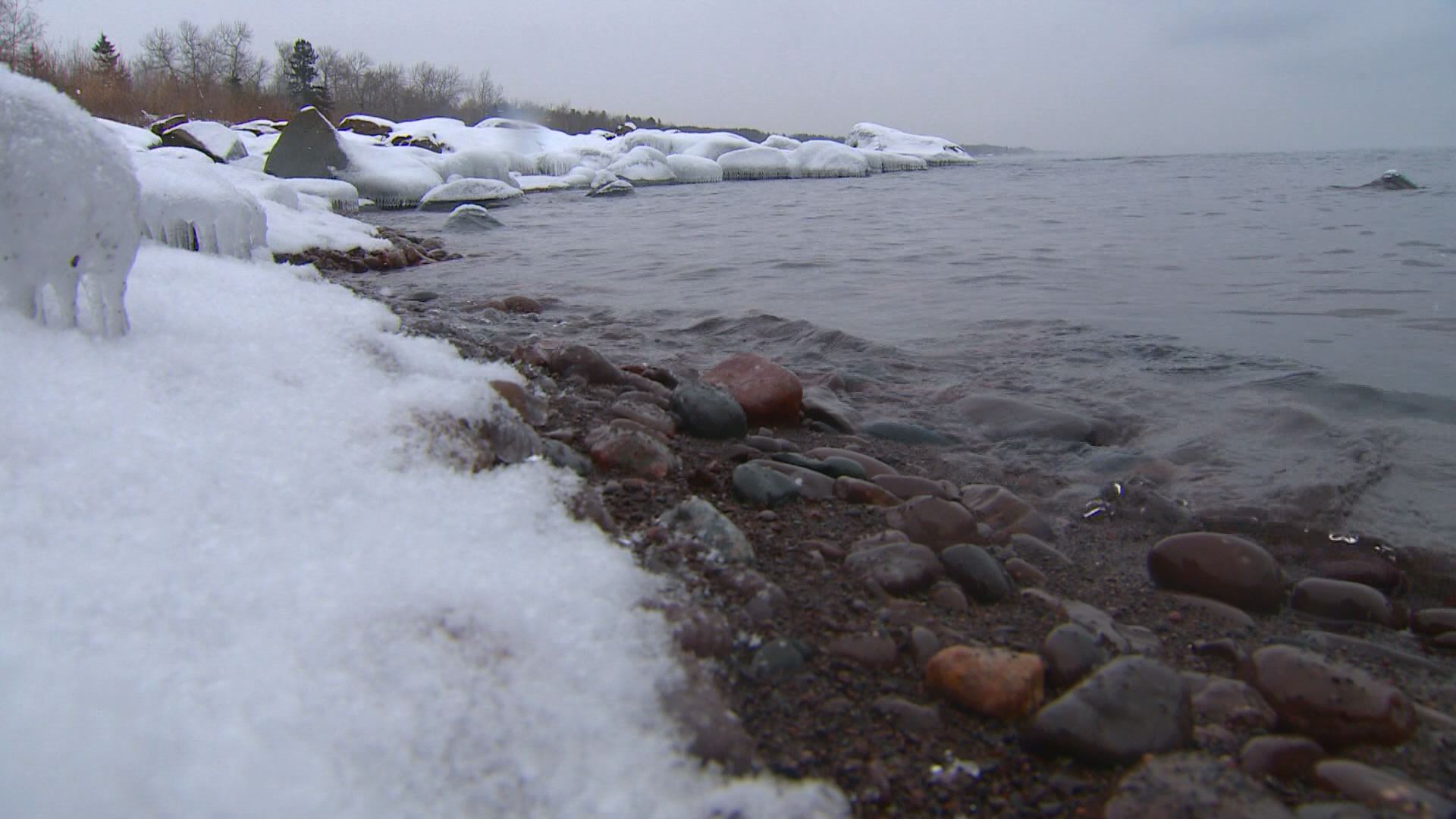DULUTH, Minn. – On a gray, chilly January day, when clouds hover just above the frigid but open waters of Lake Superior, a few hearty folks warm their souls by hiking the snowy crust of Duluth’s Canal Park.
Paige Schornak, who is walking with her sister Rachel, says, “This is always my go-to spot.”
Lake Superior is unforgettable.
“It’s really cold,” Rachel Schornak says. “I’ve been swimming in it before.”
Cold, of course, is a hallmark of Lake Superior, and yet it now ranks as the second-fastest warming lake in the world, according to a recently released global study in Geophysical Research Letters.
“Lake Superior was a clear winner, I guess,” says Dr. Catherine O’Reilly of Illinois State University.
O’Reilly is the lead author of a five-year study of 235 lakes, which examined summer surface water temperature data over 25 years. The study found that lakes on average are warming .61 F per decade.
“If you were just to do this from a straight up theoretical, physical standpoint, lakes shouldn’t be warming up this rapidly,” O’Reilly says.
The study found a strong link between rising air temperatures and warming lakes. In fact, according to O’Reilly, most lakes are warming faster than the ocean or atmosphere.
“The fact that they’re warming up so quickly was really kind of shocking,” O’Reilly says.
Ice-covered lakes not immune
A deeper dive into the research reveals – what many might consider – another unexpected finding, which hits very close to home for Minnesotans and the Upper Midwest.
“All the lakes in our study that have ice in winter all fell into this large group of lakes that are warming much more rapidly than lakes that don’t have ice,” O’Reilly notes.
The nine Wisconsin lakes (not including adjacent Great Lakes) in the study are warming and most more than a 1 F per decade.
In fact, the study shows clusters of warming water in the Great Lakes region and Northern Europe. Lakes in those places are warming faster than the global average.
All the Great Lakes are warming, and Lake Superior is heating up at more than 2 F per decade, which, as noted earlier, was the second-fastest rate in the world.
Lake Superior
Dr. Jay Austin of the University of Minnesota Duluth, who has studied Superior more than a decade, collected and contributed Great Lakes data to the warming study.
Just down the hill from his campus office, Lake Superior is experiencing an open-water winter, which he says is more and more common.
“One thing we’ve shown here is that diminishing ice cover plays a very large role in summer water temperature trends,” Austin notes.
Reflecting on the lake-warming study, Austin calls it a big step forward.
“We see this not just in a handful of lakes here or a handful of lakes in Central Africa or something like that; we see this as a global phenomenon. And it’s just another piece of evidence that indeed the climate is warming.”
Minnesota lakes
Beyond Superior, O’Reilly only found one Minnesota lake, which met the 25-year data requirements. That was Lake of the Woods, which, based on satellite data, showed a slight warming trend.
However, Minnesota’s Department of Natural Resources and Pollution Control Agency started a joint effort in 2007, known as the Sentinel Lakes, to study a variety of factors at 25 lakes, including temperature.
“It’s important to have a set of lakes like this that to some degree becoming living laboratories,” says Steve Heiskary of the MPCA.
He adds, “If these lakes warm, fish like the cisco, which is a very important forage fish, they won’t be able to survive.”
Consequences of warmer lakes
Warmer water means greener water, according to the research.
In fact, the study says the warming rate means a 20 percent jump in algal blooms and 5 percent hike in toxic blooms over the next 100 years.
“Just this increase in temperature is going to make it more likely that your lake will have a big algal bloom in it,” O’Reilly says.
The study closes with a sobering assessment: “The widespread warming reported here suggests that large changes in Earth’s freshwater resources and their processes are not only imminent but already under way.”


